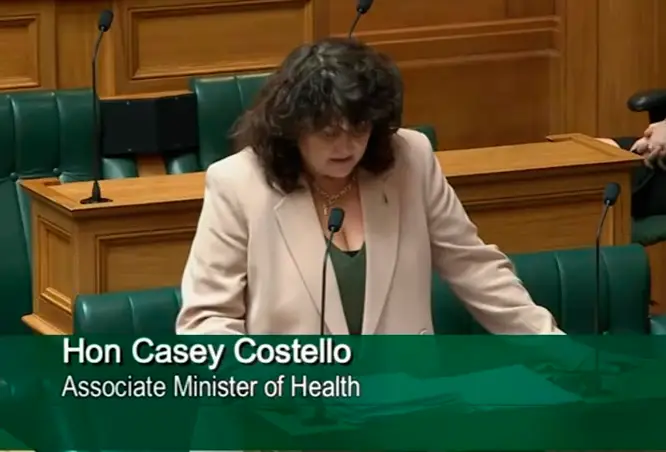In a significant development for New Zealand’s health sector, the Government has announced its intent to repeal the Therapeutic Products Act (TPA) to pave the way for a more effective and streamlined regulatory regime for medicines, medical devices, and health products. Associate Health Minister Casey Costello highlighted the government’s commitment to ensuring New Zealanders have safe and timely access to necessary health products while supporting local businesses and exporters.
The current Medicines Act, which the TPA was intended to replace, has been deemed out of date. However, the TPA itself has been criticized for potentially over-regulating certain products and imposing unnecessary costs on consumers, businesses, and exporters. The decision to repeal the Act comes in response to concerns raised by industry groups and consumers regarding the potential over-regulation of lower-risk products, such as some natural health products.

Costello emphasized the importance of listening to these concerns, stating that over-regulation could make health products more expensive or unavailable, and might not improve approval times for new medicines. To provide certainty to all stakeholders, the TPA will be repealed in full, with the repeal expected to pass before the end of the year.
The decision to repeal the Act ensures that there will be no disruption to businesses or practitioners, as most provisions in the Act were not yet in effect. The government aims to develop a modern, risk-proportionate regulatory regime for medicines and medical devices, as well as a separate modernized regime for natural health products. This new approach seeks to support innovation in health and medical products, improve people’s health outcomes, and alleviate pressure on the general practitioner and hospital system.
Later this year, the government will consider proposals for new legislation to streamline the approval process for new medicines and ensure that regulation supports innovation and economic growth. The government plans to engage with key groups through this process, building on the work already done in this area and seeking input from consumers, industry, and practitioners to develop the best possible law and regulatory frameworks.
The decision to repeal the TPA is a commitment in both the National-New Zealand First and National-ACT coalition agreements, reflecting a broader effort to create a regulatory environment that supports the health and well-being of New Zealanders while fostering innovation and growth in the health sector.
It seems that the proposed changes to New Zealand’s health sector, particularly the Therapeutic Products Act, are stirring up quite a bit of conversation. On one hand, there’s a sense of relief and celebration from some quarters, like the ACT Party, which sees the repeal as fulfilling a promise from their coalition agreement. It’s seen as streamlining processes and cutting down on bureaucracy to get necessary health products to consumers more efficiently.
On the other hand, there are concerns about what this repeal might mean for consumer protection and safety. The Therapeutic Products Act was put in place to ensure that products are safe and effective, and some worry that a more streamlined process might overlook important safety checks. There’s also a sense of disappointment from those who see years of work being thrown out without a clear replacement plan in place.
The decision to repeal the Act is part of a broader set of reforms aimed at improving New Zealand’s health system. The government’s goal is to provide timely access to medicines and health products, but some worry that the proposed changes might not achieve this goal without compromising safety.
So, it seems like opinions on these changes are quite divided. It’s a complex issue, and only time will tell how effective these reforms will be in improving the health system and ensuring consumer safety.

